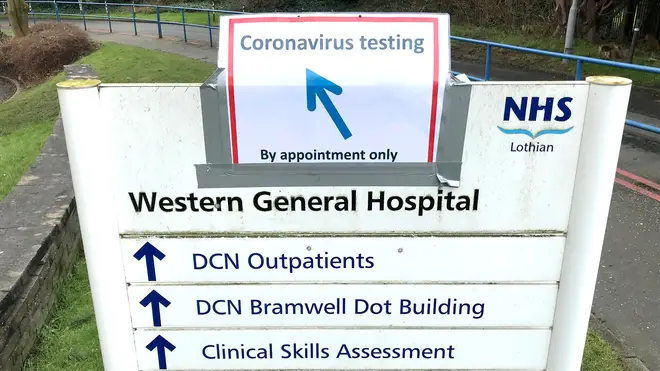
Natasha Devon 6pm - 9pm
3 March 2020, 11:35

Health boards in Scotland could apply for court orders to have those suspected of having coronavirus quarantined, the Scottish Government said.
A Scotland-specific part of the Government's plan for dealing with the spread of Covid-19 said health boards have powers to place restrictions on individuals who are known to have the disease, or have been exposed to the disease, and to restrict their movements.
Boris Johnson detailed the plan on Tuesday, claiming the outbreak could lead to a fifth of workers being absent, cause the police to drop low-priority cases and force the NHS to delay non-urgent care.
Speaking in Downing Street, alongside Chief Medical Officer Professor Chris Whitty and Chief Scientific Adviser Sir Patrick Vallance the PM said the country remains "extremely well prepared."
He reiterated his message to "wash your hands with soap and hot water for the length of time it takes to sing Happy Birthday twice."
Mr Johnson said the vast majority of the public would be able to go about their business as normal.
First Minister Nicola Sturgeon said: "As well as the four nations' Action Plan published today, we have also published tailored guidance for Scotland's unique landscape.
"Much of this planning is based on reasonable worst case scenarios which will be refined as our understanding of the virus develops, but it is vital that we are well equipped to deal with all possibilities as this outbreak grows globally.
"We will continue to work closely with the UK Government, Welsh Government and the Northern Ireland Executive as part of a co-ordinated response to this virus."
NHS Scotland also said the country’s hospitals are capable of treating more than 200,000 coronavirus patients but some operations would have to be cancelled in the case of a rapid outbreak.
National clinical director Jason Leech said treating people infected with Covid-19 will not take priority over caring for the "very sick", such as cancer patients needing chemotherapy.
Asked about forecasts that a worst-case scenario could lead to more than 200,000 people in Scotland ending up in hospital, he acknowledged some surgeries would be cancelled "if we get a big peak in numbers".
But Mr Leech sought to reassure people that essential treatments, such as chemotherapy and radiotherapy, would not be affected by a coronavirus epidemic in Scotland.
Mr Leech said: "We see half a million people every year in outpatient clinics so if we can slow the virus down and spread it out over a long time, we can absolutely cope with those numbers.
"Clearly, things are going to need to change if we get a big peak in numbers
"That might mean the cancelling of some elective surgery unfortunately if we get a peak, but it won't happen all across the country at the same time."
On the potential for cancelled operations, he said: "The health service makes prioritisation decisions every single day and right at the top of that list are the very sick, irrespective of coronavirus.
"Those with cancer, with chemotherapy, with radiotherapy appointments, with essential cancer surgery or other pieces of surgery, they will go ahead as normal.
"Only in the very, very extreme cases will we even cancel scheduled elective surgery - things that you can put off - but we're not going to cancel chemotherapy and radiotherapy."
Mr Leech reiterated the Scottish Government and health service were in a "containment phase" following the first diagnosed case in Scotland, trying to slow down the spread and learn more about the virus.
His message followed a joint briefing by First Minister Nicola Sturgeon, Health Secretary Jeane Freeman and chief medical officer Catherine Calderwood in Edinburgh on Tuesday.
Ms Sturgeon said the Scottish Government is expecting a "significant outbreak of coronavirus", with Dr Calderwood outlining estimates that between 50 and 80 per cent of the population could become infected over a period of months.
More than 200,000 people – 4 per cent of the population - may need hospital care due to the infection, although as of Monday just one person has been diagnosed with the virus out of 815 tests.